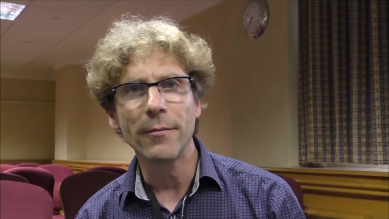Sleep Difficulties
Sleep difficulties are often reported in Angelman syndrome.
Research studies have estimated that between 20-80% of children have difficulties with sleep, with the most problems occuring between two and six years of age. Clearly there is a huge difference in estimates across research studies and this most likely reflects the different ways researchers have collected information.
Bakker et al. (2018) research shpwn dysregulated sleep composition in children with AS - differences in gamma coherence and sleep spindles, and functional connectivity patterns may be disrupted during wakefulness. Wakefulness - children with AS showed enhanced long-range EEG coherence, suring sleep children with AS showed increased long-range EEG coherence specifically in the gamma band. EEGs from children with AS also contained fewer sleep spindles, these spindles were shorter in duration than neurotypical counterparts.
Sleep problems consistently reported in the literature include difficulties with falling alseep, reduced time asleep, waking up during the night. Additional reported sleep difficulties include sleep terrors, bed wetting (enuresis), teeth grinding (bruxism) and sleep walking (somnambulism). A recent review and meta-analysis (Spruyt, Braam & Curfs, 2018) found evidence that arousal during sleep. somnolence and possibly short sleep duration are the primary sleep problems in individuals with AS. Data supported shorter sleep duration and poorer sleep efficiency observed in individuals with AS.
In this video Tracey describes the sleep difficulties her daughter with Angelman syndrome experiences:
Miodrag & Peters (2015) parents of children with AS who have sleep disturbances sleep less themsevles and report high rates of stress.
Research has suggested that sleep difficulties in Angelman syndrome do not vary across different genetic subtypes. Furthermore, epilepsy and gender have also not been linked to sleep problems in Angelman syndrome.
Sleep difficulties have not been found to affect daytime behaviour; however, only the impact on daytime alertness has been studied. Parents whose children sleep less are more likely to experience stress and lower levels of well-being. Trickett, Health, Oliver & Richards (2018) Higher sleep-disordered breathing has been highlighted in AS in comparison to TD controls and sleep disturbances in AS has been associated with poorer health.
Although no consistent association between sleep difficulties and age has been found, it has been suggested that sleep difficulties decrease into adulthood.
Sleep Interventions
There is limited evidence exploring whether behavioural interventions for sleep are effective in Angelman syndrome. However, behavioural interventions in children with intellectual disability without Angelman syndrome have shown success for a range of sleep difficulties, including sleep onset and total sleep time.
Only two research studies have examined behavioural interventions in Angelman syndrome. Overall these studies provide preliminary evidence that behavioural interventions may be effective. To read the details about these studies click below
Sleep studies in Angelman syndrome
Melatonin is a medication that is sometimes prescribed for sleep and has shown to be useful for some individuals with intellecual disability.
Further Information:
For more information on the nature of sleep in children with intellectual disability, and what can be done to reduce or improve sleep problems, click here to read Cerebra’s guide.
For useful tips on how to address some of the sleep disturbances common in Angelman syndrome click here.
If you want help and advice on sleep issues in Angelman syndrome click here.




